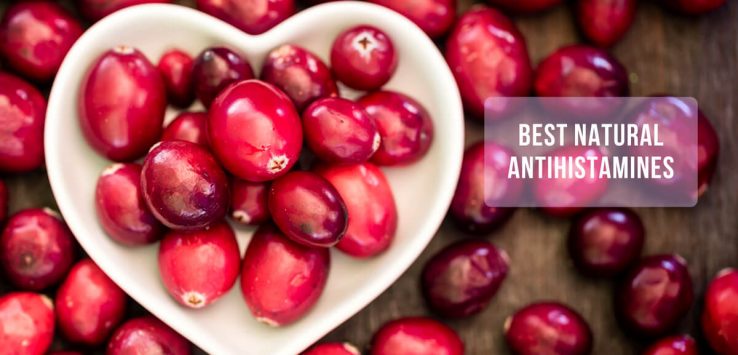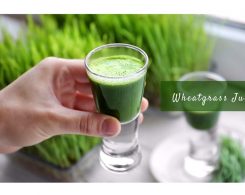- 10Shares
- 1. Cranberry Is A Natural Antihistamine.
- 2. Use Evening Primrose Oil For Allergy Relief.
- 3. Pineapple Is A Perfect Cure.
- 4. Gingko Is Antimicrobial.Â
- 5. Clove Oil Reduces Skin Inflammations.
- 6. Spinach Is A Safe & Natural Antihistamine.
- 7. Green Tea Reduces Inflammation.
- 8. Honeycomb Treats Respiratory Problems.
- 9. Garlic Cures Cough and Cold.
- 10. Peppermint Alleviates Congestion.Â
Over-the-counter antihistamine drugs are in use for a very long time. However, trying anything natural does no harm. This natural antihistamine drugs list consists of foods that increase your resistance towards externally affecting factors. They help reduce seasonal allergies like nasal congestion, running nose, sneezing, as well as hives. Here are the foods as well as herbs that work as allergy relief remedies, without inducing lethargy. Rather, they provide energy along with best results.
Natural Antihistamine Drugs
1. Cranberry Is A Natural Antihistamine.
Since cranberries are high in vitamin C as well as antioxidants, they help fight allergies and free radicals. Each berry works harmlessly unlike antihistamine drugs.
2. Use Evening Primrose Oil For Allergy Relief.
Evening primrose oil treats itching, rashes and other inflammation caused by allergic reactions. It’s also a wonderful remedy to cure hives (urticaria), which again results from environmental sensitivities.
3. Pineapple Is A Perfect Cure.
Need a powerful allergy relief? Try pineapple! Consume it raw or drink it in the juice form. Since pineapple contains bromelain, it effectively helps reduce the effects of seasonal colds, cough as well as fever.
4. Gingko Is Antimicrobial.
Allergies are curable with gingko as it is antimicrobial as well as anti-inflammatory in nature. Gingko regulates your blood circulation. It also treats respiratory issues caused by allergic reactions.
5. Clove Oil Reduces Skin Inflammations.
The essential oil made from cloves is antibacterial in nature, and it also moisturizes your skin. However, do not directly apply the oil as it may cause a burning sensation. If the infection isn’t too severe, use it with a carrier oil.
6. Spinach Is A Safe & Natural Antihistamine.
Since spinach contains high amounts of magnesium, it is considered as a natural antihistamine. The goodness of spinach helps controls the histamine growth in your body. So, you can daily consume spinach (in a moderate quantities) cooked, juiced, or as a salad.
7. Green Tea Reduces Inflammation.
Being rich in anti-inflammatory properties, green tea helps cure colds and fever. It is also loaded with antioxidants, so regular intake keeps you healthy. It reduces the inflammation that can lead to a sore throat and worsen the condition.
8. Honeycomb Treats Respiratory Problems.
Allergies cause irritability in the nasal passage as well as the throat. Therefore, honeycomb is beneficial in treating the symptoms of any respiratory problems. You simply need to chew the waxy portion of honeycomb for better and faster results.
9. Garlic Cures Cough and Cold.
Allicin, an active component found in garlic helps heal common colds, cough as well as congestion. Aroma of garlic can also clear the symptoms of sinuses unlike suppressing the signs with antihistamine drugs.
10. Peppermint Alleviates Congestion.
Peppermint is potent enough to effectively cure the symptoms of allergic rhinitis including severe nasal congestion. It is known to relieve the harmful toxins from your lungs and also restrict mucous formation.
Note: Articles on Ayurvedum are solely for the purpose of sharing the goodness of Ayurveda and bringing awareness on natural and healthy living. Please do not substitute it for professional medical advice. Ingredients discussed can interfere with certain medications. So, before using anything to treat yourself, always consult an Ayurveda doctor or practitioner.






Leave a Reply